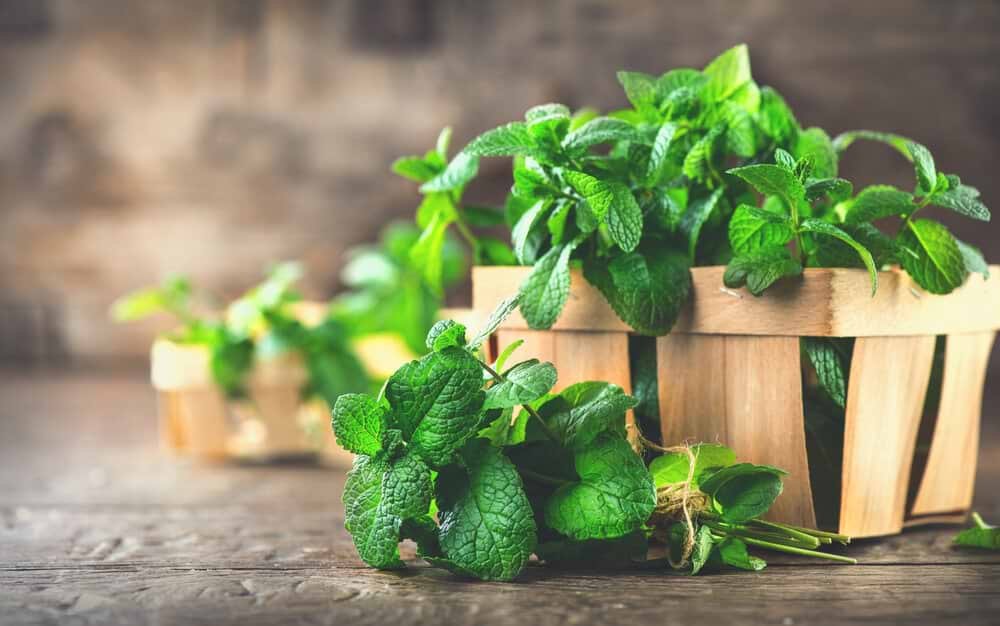The ancient Greek physician Hippocrates hit the nail on the head when he said, “All disease begins in the gut.” Even though that was over two thousand years ago, those words are even more relevant today. Stress, processed foods, and environmental toxins are like uninvited guests that disrupt your digestive party. Keeping your gut in top shape has never been more important.
Poor gut health can lead to various issues, including constipation, which is becoming increasingly common. When your digestion is thriving, your body works like a dream. Nutrients are absorbed, energy flows, metabolism stays on point, and toxins get the boot. Plus, a happy gut isn’t just about smooth digestion—it’s your immunity’s best buddy, your brain’s secret weapon, and your mood’s cheerleader.
Ready to show your gut some love? These seven simple (yet ridiculously effective) tips will help you optimize digestion, nourish your body, and feel amazing from the inside out.
Understanding Digestive Health
Digestive health isn’t just about avoiding tummy troubles—it’s about how well your entire digestive system works together as a team. From the moment food enters your mouth to when it exits (you know what we mean), your body is working overtime to break down food, extract nutrients, and keep everything running smoothly. Think of it as the engine room powering every cell in your body.
When your digestive system is in tip-top shape, you feel energized, your immune system stays strong, and you’re better equipped to fight off illnesses. But when something’s off—bloating, constipation, or abdominal discomfort—it’s your body’s way of saying, “Hey, I need a little help here!”
Factors like diet, lifestyle, and stress can throw your system out of whack. That’s why staying hydrated, eating a balanced diet, and keeping stress in check is key. Treat your gut with care, and it’ll return the favor by keeping you fueled and feeling great.
The Importance of Gut Health in Digestive Health
Gut health is all the buzz these days—and for good reason. At the heart of digestive health lies the gut microbiome, a bustling community of good and bad bacteria. These tiny microorganisms are your body’s behind-the-scenes heroes, breaking down food, helping you absorb nutrients, and supporting your immune system.
When your gut bacteria are living in harmony, everything clicks. But when they’re out of balance (aka dysbiosis), the ripple effects can lead to digestive struggles like poor nutrient absorption, sluggish digestion and discomfort after meals. Things like stress and processed foods can disrupt this delicate balance.
The fix? Feed your gut what it needs: probiotics, prebiotics, and a diverse diet full of whole, nutrient-rich foods. If you want to go the extra mile, a high-quality probiotic supplement can help keep your gut bacteria thriving. A happy gut equals better digestion—and a better you.
1. Relax Before You Eat
Believe it or not, digestion starts long before you even take your first bite. Your mental state plays a massive role in how well your body processes food, and no one digests well in panic mode.
How to Set the Vibe for Better Digestion:
-
Set the Tone: Sit at a real table (you know, not your desk or car). Turn off distractions like your phone or TV. A calm environment tells your brain to shift gears and prep for digestion.
-
Pause for Gratitude: Before diving in, take a deep breath (or three) and think about how your meal is nourishing your body. Bonus: this actually gets your digestive juices flowing!
-
Activate Rest-and-Digest Mode: Slow down. Take a moment to chill. When you’re calm, your parasympathetic nervous system—the hero of digestion—kicks in.
Eating in a relaxed state gives your body the VIP treatment it needs to absorb nutrients and avoid party crashers like bloating or indigestion.
2. Chew More, Digest Easily
Chewing: the low-key MVP of digestion. Sure, it seems simple, but when you slow down and chew your food thoroughly, you set the stage for smoother digestion and better nutrient absorption.
Why Chewing Deserves More Love:
-
Smaller Food, Bigger Impact: Your teeth break food into bite-sized pieces, making life easier for your stomach and intestines.
-
Enzyme Boost: Chewing triggers saliva production, and your saliva comes loaded with enzymes like amylase to start breaking down carbs.
-
Feel Full, Not Stuffed: Chewing slowly gives your brain a chance to catch up and say, “Hey, we’re good!” before you overdo it.
Pro tip: Aim to chew each bite 20–30 times, or until your food feels smooth. Your gut will send you a thank-you card.
3. Feed Your Gut the Right Way
Your gut isn’t just an organ—it’s home to billions of microorganisms that make your digestive system work like a well-oiled machine. Feed these friendly microbes well, and they’ll reward you with better digestion, stronger immunity, and even a sunnier outlook on life (gut health = mood boost).
How to Keep Your Gut Microbiome Thriving:
-
Probiotic Foods: Fermented goodies like yogurt, kimchi, and sauerkraut bring in the good bacteria your gut loves.
-
High-Fiber Foods: Fruits, veggies, whole grains, and legumes are prebiotic gold—they feed those good bacteria so they can do their job.
-
Mix It Up: A diverse diet keeps different strains of gut bacteria happy, creating a thriving microbiome.
Need an extra nudge? A high-quality probiotic supplement with multiple strains can be your microbiome’s new best friend.
4. Stay Hydrated for Smooth Digestion
Dehydration can mess with digestion faster than you can say "constipation." Staying hydrated ensures your digestive system runs smoothly—literally.
Hydration Tips for Happy Digestion:
-
Water Wins: Sip water throughout the day. The classic "8x8 rule" (eight 8-ounce glasses) is a good starting point, but adjust based on activity and weather.
-
Skip the Sugar Bombs: Sugary drinks and sodas can mess with your gut bacteria. Stick to good ol’ water.
-
Time It Right: Drink water before meals to help prep your stomach. Avoid chugging during meals, though—it can dilute stomach acid and slow digestion.
Make hydration a daily habit, and your gut will flow as smoothly as your favorite herbal tea.
5. Drop Habits That Harm Your Gut Health
Sometimes the best way to improve your digestion isn’t about adding—it’s about subtracting. Certain habits sneakily sabotage your gut health, so kicking them to the curb can make all the difference.
Gut-Offending Habits to Ditch:
-
Artificial Sweeteners: Sweeteners like aspartame might be calorie-free, but studies suggest they can mess with your gut bacteria.
-
Too Much Alcohol: A little is okay, but overdoing it can irritate your gut lining and wipe out beneficial bacteria.
-
Late-Night Meals: Big dinners right before bed? Not your gut’s best friend. Lying down too soon can lead to indigestion and acid imbalance.
-
Overuse of Medications: Antibiotics, NSAIDs (like ibuprofen), and antacids can disrupt your gut microbiome when used excessively.
Your gut will breathe a sigh of relief when you nix these habits.
6. Move Your Body, Support Digestion
Need even more motivation to exercise? Movement isn’t just for burning calories—it keeps your gut humming along happily.
Easy Ways to Add Movement to Your Day:
-
Post-Meal Walks: A 15-minute stroll after eating helps stimulate peristalsis (fancy word for gut contractions that move food along).
-
Gentle Workouts: Yoga, especially poses like Cat-Cow or Seated Twist, massages your digestive organs and encourages flow.
-
Stay Active Daily: Even light activities like gardening or dancing in your kitchen can support a healthy digestive rhythm.
The bottom line? A little movement goes a long way in keeping your digestion smooth and stress-free.
7. Incorporate Herbal Remedies for Digestion
When it comes to herbal allies, nature knows what’s up. Certain herbs and spices are digestive superheroes, helping to soothe, cleanse, and support your gut in the most natural way possible. Herbal medicines have been used for centuries to promote digestive health and alleviate abdominal discomfort.
Herbs like turmeric offer significant health benefits, supporting digestion and overall well-being.
Herbs to Keep in Your Digestive Toolkit:
-
Ginger Root: A long-time favorite for easing nausea and bloating, ginger supports digestion and nutrient absorption.
-
Peppermint Leaf: A classic for calming indigestion, peppermint relaxes your digestive muscles and reduces cramps.
-
Dandelion Root: This liver-loving herb boosts bile production, making it easier to digest fats.
-
Slippery Elm Bark: A gentle soother, it coats your digestive tract to ease irritation and support gut healing.
-
Peppermint Tea: Widely consumed for its digestive benefits, peppermint tea calms the stomach and alleviates discomfort after meals.
Brew them into teas or infusions for a tasty, natural way to boost your digestive and gastrointestinal health. These herbs can support healthy digestion and manage chronic gastrointestinal discomforts.
Elevate Your Digestive Health Through Better Digestion
Your digestive health isn’t just about fewer stomachaches—it’s the gateway to vibrant energy, a strong immune system, and a balanced mind. By adopting small, consistent changes—like chewing more, hydrating well, and adding herbs to your routine—you can give your gut the love it deserves.
Ready to unlock your best digestion yet? Start with these tips and let herbs be your trusted allies. Your gut (and your entire body) will thank you!
Rebecca Younger is passionate about herbs and women's health. She aspires to plant seeds of inspiration within her community about plant medicine and healthier ways of life. She studied Herbal Medicine at Herbalism Roots in Denver and is a certified Doula through the Matrona Foundation. She is the Brand Communications Specialist at WishGarden Herbs.
For educational purposes only. This information has not been evaluated by the Food and Drug Administration. This information is not intended to diagnose, treat, cure, or prevent any disease, or to sell any product.
Recommended Products
Further Reading













